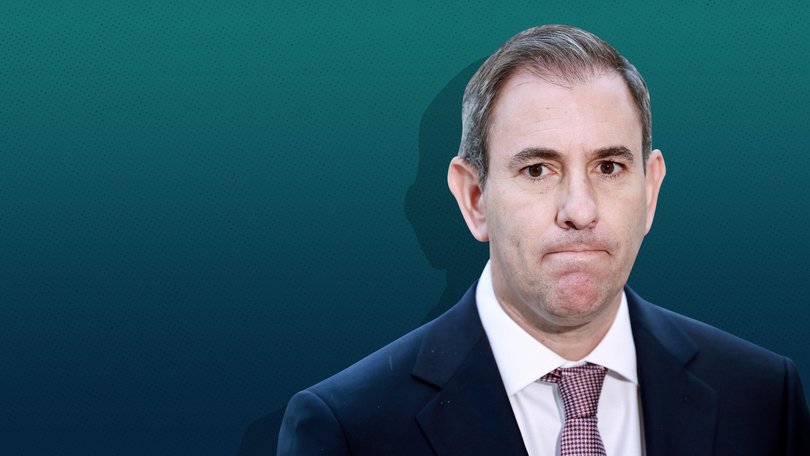ANDREW CARSWELL: Labor’s growth problem reminds us there is zero cost when someone else is footing the bill
ANDREW CARSWELL: Perhaps the biggest indicator of the Albanese Government’s reluctance to lump business with new taxes is the Prime Minister’s muzzling of the Treasurer’s ambition on reform.

Perhaps the penny has dropped.
After weeks of flirting with revenue-raising ideas, tossed like grenades into last month’s economic talkfest in Canberra, it is finally dawning on the Albanese Government that it cannot keep leaning on Australian business to fund its uncontrolled spending.
Certainly, it would, if it could get away with it. That much is beyond dispute. For Labor governments, the instinct is always to treat business as an inexhaustible revenue stream to bankroll pet projects, political frolicks and social experiments.
Sign up to The Nightly's newsletters.
Get the first look at the digital newspaper, curated daily stories and breaking headlines delivered to your inbox.
By continuing you agree to our Terms and Privacy Policy.But even this Government — which has hardly been a friend of business, having dutifully worked its way down a long union wish list, ticking off every demand that started with a vowel or consonant — is beginning to realise there are limits.
Stretch the rubber band too far, and it will snap back in your unsuspecting little face.
And suddenly, the very business investment that sustains wages, jobs and living standards begins to buckle, well beyond the wobbles we are already seeing on capital expenditure that has led to Australia’s anaemic economic growth.
It is a fight Albanese doesn’t want to have
Has the Albanese Government finally conceded this undeniable truth? That you cannot tax your way to growth? The indications are comforting. Or is that simply naive?
There has been no shortage of proposals to hike business taxes from commissioners, institute directors, commentators and economic professors — most of whom enjoy generous wages that aren’t dependent on the performance of the real economy. It costs nothing to be reckless when someone else is footing the bill.
A super profits tax, a cash flow tax, a digital platforms tax, a carbon tax, increases to the Petroleum Resources Rent Tax, the windback of fuel tax credits. All blunt instruments floated in the lead-up to the economic roundtable, designed to either aid budget sustainability (read: pay for the Government’s outrageous spending) or deliver a fabled social equity dividend (read: wealth distribution).
All at the expense of the economy.
But to consider any such tax proposal would invite enormous risk for a Government that may be politically ascendant, but remains highly exposed to any economic or employment downturn — particularly one of its own making.
It has successfully picked its way out of a prolonged COVID-induced inflation nightmare that has constrained global economic growth. Interest rates continue to fall, and employment remains on a strong footing. Why would it take a risk on tax that could undermine any concerted economic recovery, and pump oxygen into the listless body of the Coalition?
Such moves would also be at odds with a Government that has so far shown scant appetite for tax reform that might erode its political capital.
That it is taking tough decisions elsewhere to fix the budget — toughening the rules around the NDIS, and freezing deeming rates for pensioners — is an indicator that it is clearly looking elsewhere to pay Treasurer Jim Chalmers’ mounting bills.
Beyond a tweak to the PRRT, the Government has also shown little willingness to use the corporate tax system as a lever for political or policy outcomes. It chose not to introduce a carbon tax to pressure heavy emitters, instead opting for a safeguard mechanism that penalises companies failing to decarbonise at the mandated pace.
It has resisted the more extreme calls from environmental activists to scrap the fuel tax credit, which rightly reimburses businesses for the excise they pay on off-road diesel use. Again, preferring to let the safeguard mechanism do its work in incentivising businesses to reduce fossil fuels use. Not the tax system.
But perhaps the biggest indicator of the Government’s reluctance to lump business with new taxes is the Prime Minister’s muzzling of the Treasurer’s ambition on reform, and his proclamation that he would only undertake tax reform if he had a mandate from the Australian people.
It is a fight Albanese doesn’t want to have.
Even the proposal from the Productivity Commission of a cash flow tax, which would lower the tax burden for the majority of businesses, but increase taxes on the nation’s most productive businesses, is losing its lustre within Government.
There is a clear acknowledgement within Government that putting a further 5 per cent tax impost on top of what is already the fourth-highest corporate tax rate in the OECD wouldn’t just have a dampening effect on the economy. It would crush it.
Did we honestly think that subjecting our biggest companies — the ones that drive the bulk of the nation’s investment and jobs growth — to a corporate tax rate on par with Argentina, Cuba and Chad would be advantageous?
Mind you, Queensland miners would take Cuba’s tax rate in a flash. Under their Government’s extreme coal royalties scheme, coal companies are paying one of, if not the highest effective tax rates in the world, with the BHP Mitsubishi Alliance topping the pops with a staggering 67 per cent tax rate.
Add another cheeky 5 per cent on top?
Reckless endangerment.
Either the penny had dropped in Canberra, or the Albanese Government just doesn’t have the dare to even look at the goose that laid the golden egg, let alone grab a knife.
Who says aversion to risk is a bad thing?
Andrew Carswell has clients in the mining sector
